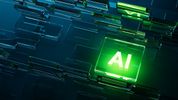"The reports of my death have been greatly exaggerated" should be the riposte of the accountant.
Machine learning and AI will lessen the bookkeeping element and most advances have been the digitising of manual processes.
Accountants can them move to the consulting and leadership role using analytics to find the insights and decision-making ability to address the compelling ways to double profit i.e.
- Increase revenues by 5%
- Decrease Cost of Sales by 5%
- Decrease direct costs by 5%
- Decrease indirect costs (overheads) by 5%
Try it- the bottom line will at least double.
Machine learning and AI can free up the accountant to spend more on achieving those goals.
Remember though- there is no shortcut; if the data is incomplete, inaccurate, inaccessible, out-of-date then get that sorted first. Otherwise machine-learning just automates mistakes.
ut that sort of automation is really old news. The newer trends and breakthroughs in the field involve much more complex automation for tasks like: Audits — in which computers excel at executing structured processes and rigorous checking Regulatory compliance — as regulations get more complex, computers can assist in ensuring transactions comply and facilitate necessary reporting Receipt reconciliation — programs that turn receipts into machine-readable data can then reconcile them with transaction data eliminating the need to ever “balance the checkbook” Risk management — computers are already getting to be very good at fraud detection and prediction that human operators can miss Trend analysis — as with most fields, many high paid accountants and financial advisors make predictions, and with the right data, computers can do so just as well if not better






